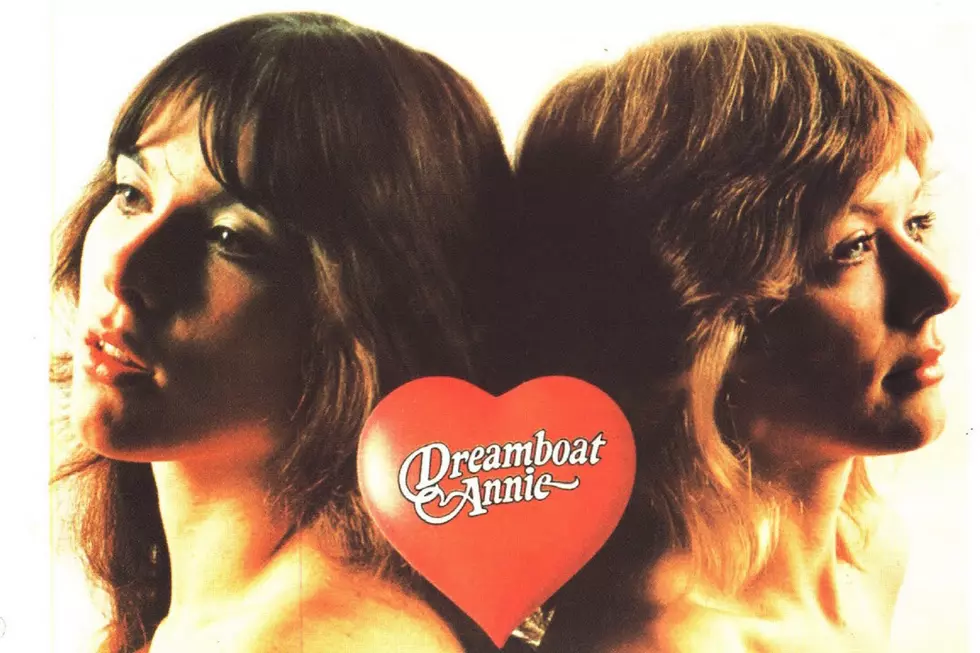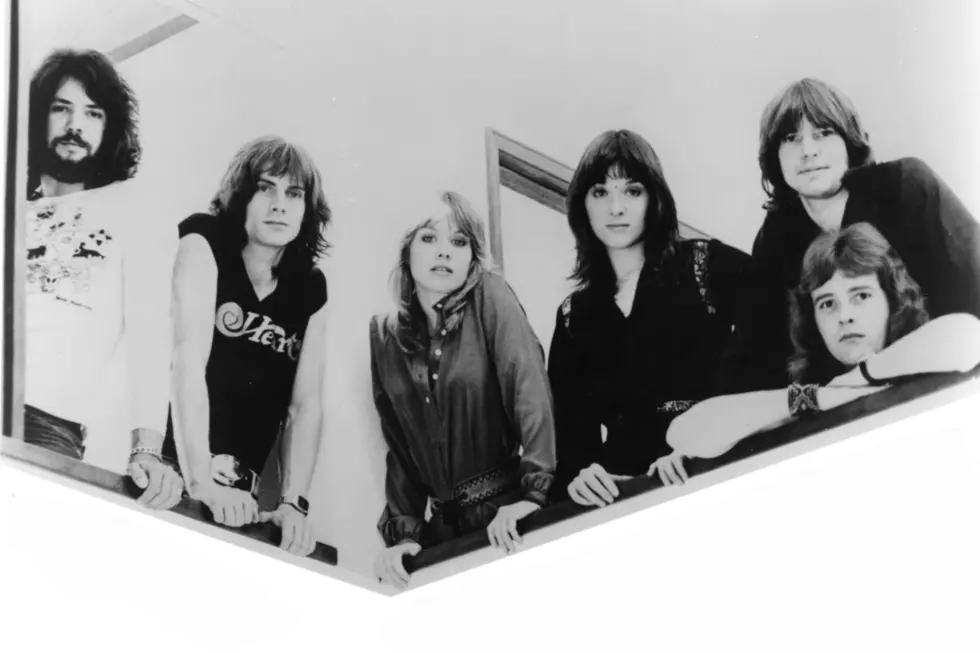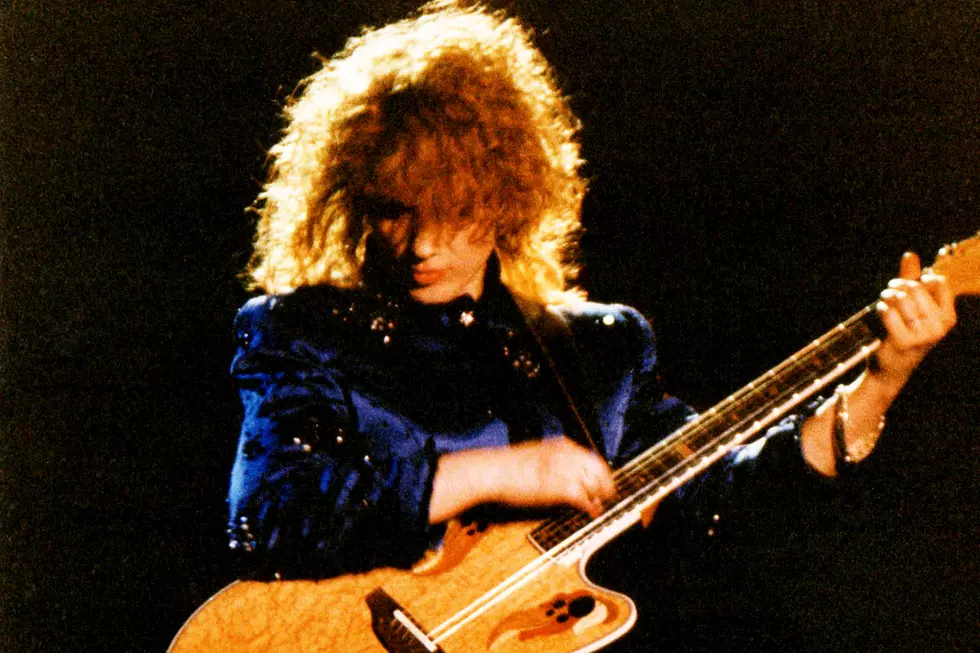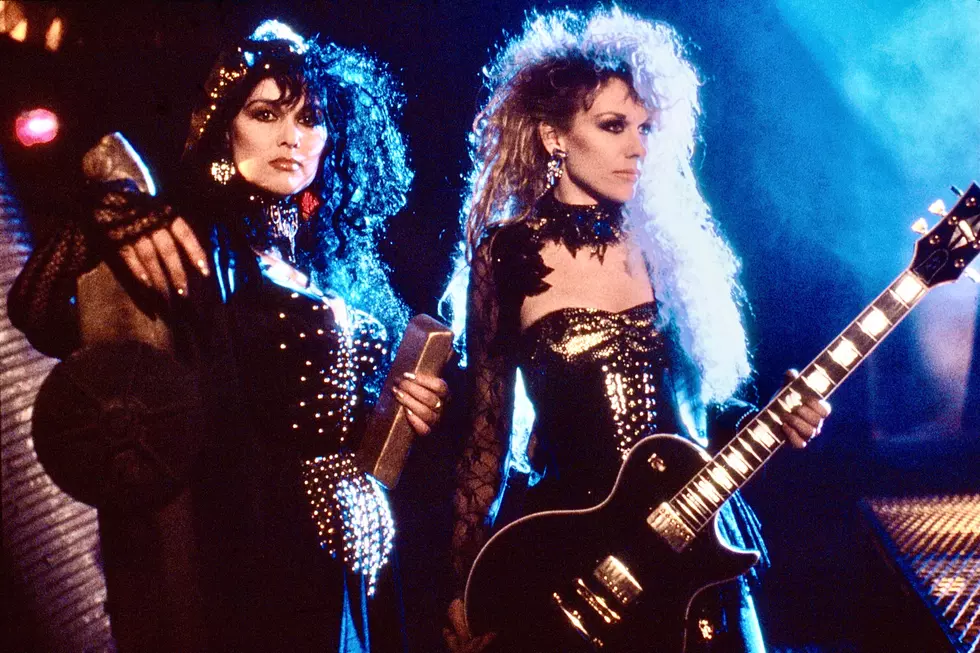
When Heart Finally Landed in the U.S. With ‘Dreamboat Annie’
Heart's Dreamboat Annie finally arrived at U.S. record stores on Feb. 14, 1976, months after its summer 1975 release in Canada.
The LP coalesced at the same time the then-Vancouver-based group was trying to make a name for themselves by touring around Canada's "cabarets, clubs and grand party dances," as Ann Wilson said in Jake Brown's Heart: In the Studio. "We were writing the whole time too, so it came together gradually, which was more a blessing than a curse."
Recording took place at Vancouver's Can Base studio with Mike Flicker, who was staff producer at Heart's former label, Mushroom Records. Flicker's presence and influence was immediately felt, mainly because he recruited Howard Leese, a producer at Can Base, to be part of the Dreamboat Annie studio sessions.
In Heart: In the Studio, Leese said he helped "speed things up" recording-wise, since Heart's rotating cast of drummers at the time was bogging things down. Not only did he add keyboards and write string arrangements to Dreamboat Annie, but he ended up joining Heart as a permanent member.
That fluidity extended to how Heart committed the songs to tape. "They always tracked live in the studio as a band," Flicker explained. "Most of the songs on the album were all done in the studio first, and then live, so they were really morphing as a band during the studio process."
Watch Heart Perform 'Crazy on You'
Make no mistake, however: Dreamboat Annie was completely the vision of sisters Ann and Nancy Wilson. The pair demoed these songs together, bonding them with their natural gift for harmonies and an intuitive musical connection. They fed off of each other's strengths.
"Crazy on You" begins with Nancy Wilson's brisk acoustic guitar, which has almost flamenco accents, before evolving into a thunderous electric track with a dreamy bridge and Ann Wilson's howl. The classic "Magic Man" — which was inspired by Ann Wilson's then-relationship with Mike Fisher — utilizes proggy flourishes and mystical grooves, while "White Lightning & Wine" is a bluesy boogie and "Sing Child" betrays the band's love of Led Zeppelin.
The way Dreamboat Annie mixes these loud, aggressive moments with more nuanced, stripped-back songs — notably the string-kissed "How Deep It Goes" — is perhaps more impressive, though. (In fact, the title track appears in three separate guises: dreamy '70s soft rock, fantastical folk and easygoing, banjo-tinged rock.) It's a template and approach Heart would employ on all of their future albums, and signaled the band as a unique, thoughtful entity.
"It was a real first to see two women who were not just the ornaments, but the writers and the singers and the players too," Nancy Wilson told In the Studio With Redbeard. "I think if anything that it did for other women in the biz, it gave them a lot of encouragement and a lot of hope."
Listen to Heart Perform 'Magic Man'
Perhaps even better, the musicians and players in Heart's orbit had enormous respect for the Wilson sisters' talents, especially Ann's powerful voice. That dynamic studio chemistry helped Dreamboat Annie's songs — and Heart themselves — evolve. "As a band we really solidified our own character by the end of the Dreamboat Annie sessions," Nancy Wilson said in Heart: In the Studio. "A lot of styles and poses that we offered up in clubs were stripped off for the all-original new Heart that felt most like us to us."
The record also took off in the U.S., landing at No. 7 on the Billboard Top 200 and spawning two Top 40 singles ("Magic Man" at No. 9 and "Crazy on You" at No. 35). In the wake of Dreamboat Annie's release, Heart toured both Canada and the U.S. with groups like the Doobie Brothers, Jefferson Starship, Ritchie Blackmore's Rainbow and REO Speedwagon.
A legal battle with Mushroom Records would sprout in the coming years, but Dreamboat Annie established Heart as a groundbreaking band driven by their love of music.
"When it was finished, we looked back amazed at what we'd done, because there had been no real road map," Ann said in Heart: In the Studio. "It was just a bunch of songs and a lot of gumption. It was nothing like anything that was being played on the radio. We most certainly weren't sexy disco chicks or leather-wearing Suzi Quatros who might kick your face out. It was something else. I never dreamed they would eventually dig it in Detroit … but they did."
Heart Albums Ranked
More From Ultimate Classic Rock









